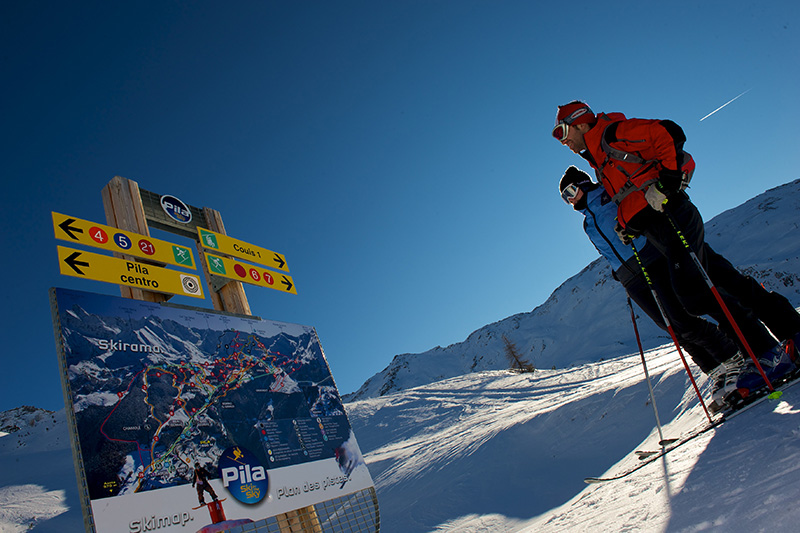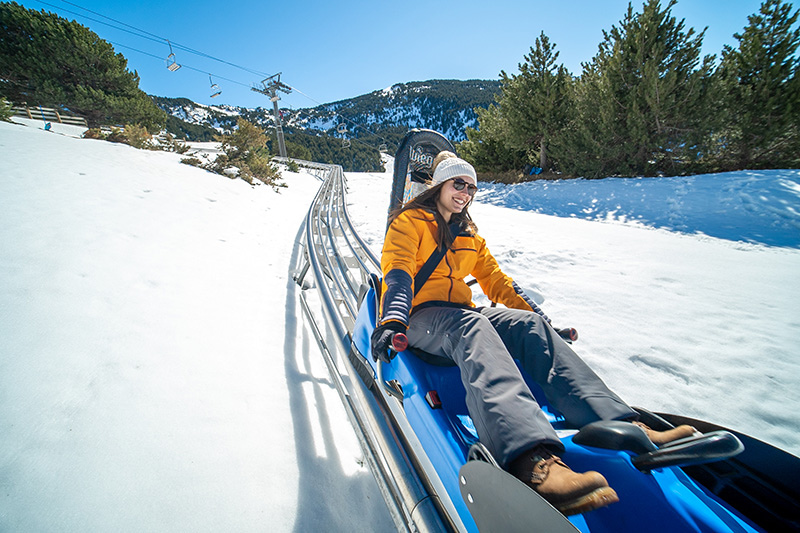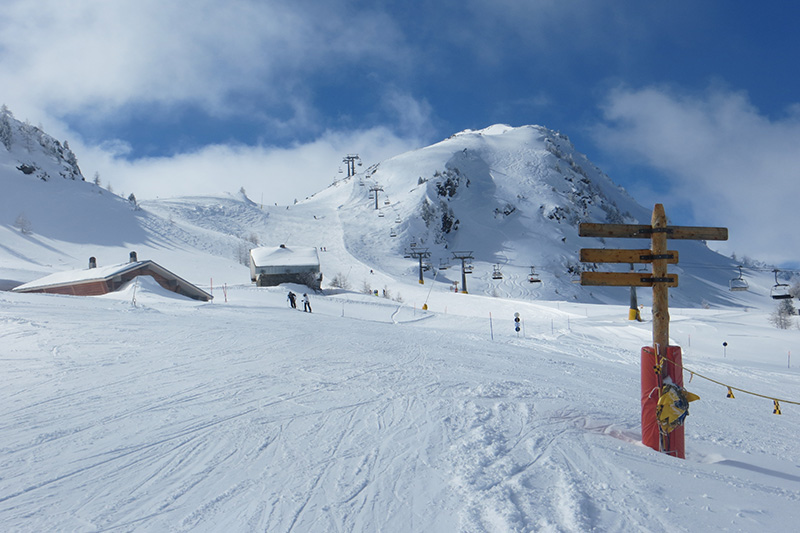A ski holiday sounds straightforward at first, but once you add in all the extras (lift passes, equipment hire, lessons etc.) the costs pile up pretty quickly. Prices across Europe have increased significantly since the pandemic, so planning ahead isn't just smart, it's essential.
The good news? You can still find brilliant value if you know where to look. Some destinations offer the same snow and scenery as the big-name resorts, just without the premium price tag.
This guide breaks down what a week on the slopes really costs today, from flights and accommodation to lift passes and food—so you can see where your money goes and where you can save. We’ll compare how Italy and Andorra measure up to other European spots and share a few easy ways to save money without cutting back on the experience.
The Real Price of a Ski Holiday
A week on the slopes in Europe can cost anywhere from around £1,000 to £3,500+ per person, depending on where you go, where you stay and how you travel. Prices might creep up a bit this season with higher fuel and accommodation costs, but there are still plenty of ways to keep things affordable.
What you’ll spend really comes down to a few things—the size of the resort, when you go, and what’s included in your booking. Peak times like February half-term will always cost more, but January and March often give you the same snow for a better price.
Most travellers find that accommodation and lift passes take up the biggest share of the budget, followed by food and lessons. Even within the Alps, there’s a wide price range, and knowing where to look can make all the difference.
Breakdown of Ski Holiday Costs

Every ski holiday looks a little different, but most follow a similar pattern when it comes to spending. Here’s a rough idea of what most people spend over a week on the slopes.
Flights and transfers
Return flights from the UK to major European ski hubs average between £120 and £250 per person, but can go above £500 on peak dates! Prices tend to climb during school holidays, so booking early can make a big difference.
Transfers can easily add another £70 to £150 per person for a shared minibus or coach. It’s often cheaper to fly into a smaller airport closer to your resort, rather than taking a long private transfer from a bigger hub. It's often cheaper to fly into a small airport closer to your resort, or book a coach holiday for a smoother, more scenic journey to the slopes.
Accommodation
Accommodation takes the largest share of most ski budgets. Expect to pay around £700 to £1,500 per person per for mid-range hotels or catered chalets with breakfast and dinner included.
Self-catering apartments can save around 20-30%, especially in smaller Italian resorts or Andorra, where lodging and dining are noticeably cheaper than in France or Switzerland.
Lift passes
A six-day lift pass typically costs £200 to £500, depending on the size and popularity of the resort.
Many resorts offer family or group passes that take a chunk off the cost. If you can travel in early January or March, you’ll usually find lower prices and fewer crowds.
Some passes also offer access to alternative resorts which can represent great value.
Equipment hire

Ski and snowboard hire usually costs between £120 and £180 per week. This includes boots, poles, and helmets. This means it can often be cheaper to rent equipment than pay the airline fees to bring your own.
Booking your equipment online before you travel can save up to 30%, and you’ll often find better gear available on arrival.
Lessons
Group lessons cost around £200 to £300 per person for five or six days, while private lessons average £60 to £120 per hour.
Half-day group sessions are a good balance for beginners, offering plenty of guidance while still leaving time to practise in the afternoons.
Food and extras
Food prices vary a lot by country and resort. Eating out for lunch and dinner each day costs roughly £40 to £100 per person, while self-catering or half-board accommodation can really help control daily spending.
Budget around £200 to £400 for extras such as après-ski drinks, souvenirs, incidentals and local activities.
Where You’ll Find the Best Balance of Price and Experience
Italy and Andorra are still the best bet if you’re chasing good snow and fair prices. The slopes are tidy, the lift systems are modern, the food’s decent, and it all feels a bit easier on the wallet than many other places in Europe.
Italy
Italian resorts like Pila and La Thuile in the Aosta Valley keep prices fair without cutting corners. Lift passes and meals are noticeably cheaper than in France or Switzerland, and you'll still find well-connected ski areas with reliable snow. Even in high season, a week here can cost 20-30% less than a comparable stay in the French Alps.
Andorra
Andorra’s ski packages are among Europe’s most budget-friendly, especially for families. Resorts like Grandvalira and Pal Arinsal offer modern lifts, wide beginner slopes, and accommodation that's much cheaper than anywhere in the Alps. The tax-free shopping and lower dining prices are an added bonus.
France and Switzerland
While still among the most popular, these destinations come with higher costs—especially in the big-name resorts like Val d’Isère or Verbier. The skiing is great, but meals, passes and accommodation add up quickly. Travellers looking to keep costs under control often stay in small nearby villages and take advantage of regional ski pass deals.
If you're flexible with travel dates and locations, it's easy to find that sweet spot between quality and affordability. Early or late season trips in Italy or Andorra often deliver great snow, fewer crowds, and much better prices.
Extra Expenses to Keep in Mind
You might have the main things covered, but a few small costs always seem to appear. It’s easier to plan for them now than be surprised later.
- Travel insurance
Winter sports cover is essential. Standard travel insurance often doesn't include skiing or snowboarding, so check your policy carefully. Expect to pay around £40-£70 per person for a week's cover that includes medical emergencies and lost equipment. Family annual policies normally offer the best value and make sure you use the comparison sites to shop around. - Resort fees and local taxes
Many European resorts charge a small daily tax—usually €1–€3 per night—that’s added to your accommodation bill. It’s not a big expense, but worth factoring in for accuracy. This is rarely included in your ski holiday cost and normally paid to hotel reception on check out. - Currency and card fees
If you’re heading to non-euro destinations like Switzerland, exchange rates can make a difference. Using a travel card with no foreign transaction fees can save you a few pounds each day. - Clothing and accessories
If you’re new to skiing, you’ll need proper waterproof gear, gloves, and goggles. Buying second-hand or renting ski clothing outerwear for your first trip can save quite a bit. - Wi-Fi and mobile data
Not all mountain accommodations include free Wi-Fi, and mobile data can be patchy in high-altitude areas. Check if your UK plan still covers EU roaming, or pick up a local SIM if you’ll be using data a lot. Be mindful that some countries are in Europe but NOT the EU and so data roaming can be a significant cost!!!
Little extras like these might not seem like much on their own, but together they can add £100–£200 to your total spend. Planning for them upfront keeps your budget realistic and stress-free.
Smart Ways to Save on Your Ski Holiday

Skiing’s never the cheapest holiday, but you can still make it work. A bit of planning and a few smart choices go a long way.
- Travel outside peak weeks
Avoid February half-term and Christmas if you can. Prices drop by as much as 30% in January or mid-March, and you’ll enjoy quieter slopes and shorter lift queues. - Look for package deals
Putting your flights, transfers, and accommodation into one booking usually works out better value. Some UK operators even include lift passes or ski hire if you catch their early deals. - Stay slightly outside the main resort
You can save quite a bit by staying in a nearby village just a few minutes from the main lifts. Most of them have easy shuttle or ski bus links, so you won't miss out on time on the slopes. - Bring your own snacks and basics
Mountain restaurants can be expensive. Packing cereal bars, instant coffee, or even simple lunches can cut costs without cutting comfort. - Share lessons or go for half-days
Private lessons add up quickly. Group sessions or half-day formats give you solid guidance for a fraction of the cost—and still leave time to practise on your own. - Pre-book equipment and passes
Many rental shops and resorts offer early-bird discounts of 10–20% when you book online before arriving. - Keep an eye out for lift pass bundles
Some places, like Andorra or smaller Italian resorts, throw in free lift passes for kids or offer family discounts that make a real difference.
Saving isn’t about going cheap—it’s about spending smartly so you get the most from every part of your trip. A little planning before you go means more freedom once you’re there.
Final Thoughts
Planning a ski holiday can feel like a lot, but it doesn't have to be. Once you know where to look and what to skip, everything falls into place. You can have good snow, good food, and good memories without the stress of overspending. That's the kind of holiday we love to plan!
With Interski Holidays, planning's the easy part. We sort your accommodation, ski hire, lift passes, and lessons before you even get there, and our team in resort's always close by if you need help. You just turn up, hit the slopes, and enjoy it. Let us deal with the hassle and leave you to have a great ski holiday.
Message us today and we'll help you get your ski holiday sorted.
.jpg)
.jpg)
.jpg)
.jpg)